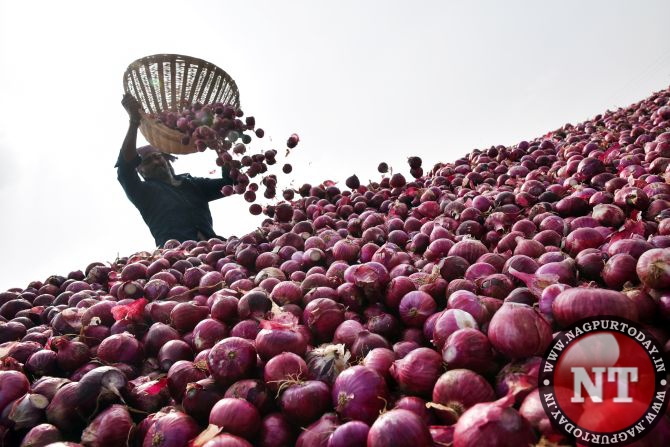Nagpur: The customs department last week seized a consignment of onions that was being shipped to the UAE under the guise of tomatoes to dodge the export ban. The action was taken by the Nagpur customs office whose jurisdiction extends till Nashik.
On Sunday afternoon traders were buoyed by the news of government lifting the ban. In global market onions are fetching as much as 15 times the rates at which traders here are buying the commodity from farmers in India, said sources in the business. The high margin is expected to have lured traders to clandestinely ship onions to other countries, said sources.
At agriculture produce marketing committee (APMC) yard at Kalamna, the average rates offered to farmers are at Rs15 a kg. Inferior grades are fetching a lower rate. In Nashik, the hub of onion trade, it is around Rs13 a kg, said sources.
In markets like UAE, onions are fetching as much as Rs125 to Rs140 a kg for an Indian exporter. This is due to an acute shortage world over. Onions are grown in countries like China, Bangladesh, Egypt and Turkey. However, its shortage elsewhere and the ban on exports in India have kept rates down. Exporters had been pressing for the ban to be lifted saying that it would also help farmers. The government was apprehensive that the March-April harvest of onions was estimated to be lower by 30% than the benchmark yield.
The traders, however, insisted the current estimates of a lower crop need to be reviewed. An official in the directorate general of foreign trade (DGFT) confirmed that the ban has been lifted, however a formal notification is yet to be issued. Export of onions was banned as a measure the keep the domestic prices under control. On the other hand, traders say the ban affected farmers making the current rates unprofitable for them. Ajit Shah, president of onion exporters association, said in a meeting with exporters, the government side mentioned that it may not be suitable to start exports as the forthcoming crop was estimated to be down.
Exporters, however, said estimates should be reviewed after involving both traders and farmers. Shah said if the exports are allowed, it would moderately increase the rates and help farmers get better price. Manoj Jain of Jain Exports at Nashik said, “If prices are down, there is a slump in all businesses.”















